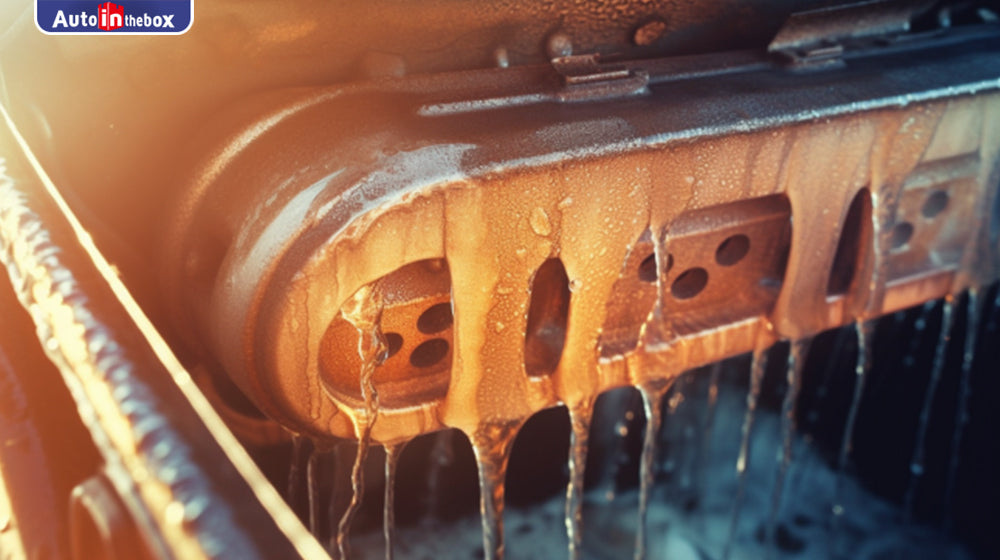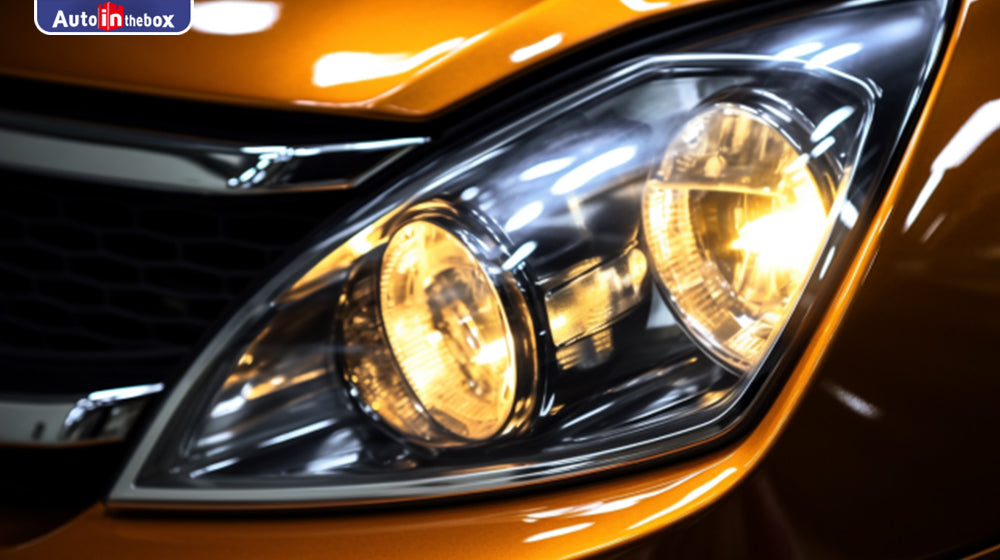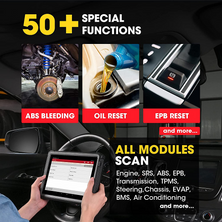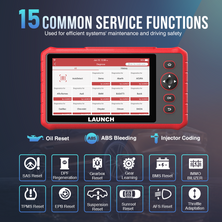
Why my car windows blurry?
Car windows blurry refers to the condition where the windows of a car become unclear or hazy, affecting visibility both from the inside and outside of the vehicle.
Recommended 2023 top car diagnostic tool:Autel IM608II,Launch pro5,Launch IMMO elite,Launch PADVII,Launch IMMO plus
The blurry car windows pose a significant impact on driving safety. They obstruct the driver's visibility, making it difficult to perceive the road, traffic signals, and pedestrians clearly. This reduced visibility increases the risk of accidents and impairs the driver's ability to make accurate judgments and timely maneuvers while on the road.
Remember, it's crucial to prioritize safety and clear visibility while driving. If the car windows remain persistently blurry despite attempting these solutions, consult a professional auto technician for further inspection and assistance.
By following these preventive measures, you can help maintain clear and unobstructed car windows, ensuring optimal visibility and driving safety.
Remember to adhere to local laws and regulations regarding the use of tinted windows, and always prioritize safety and comfort while driving.
Recommended 2023 top car diagnostic tool:Autel IM608II,Launch pro5,Launch IMMO elite,Launch PADVII,Launch IMMO plus
The blurry car windows pose a significant impact on driving safety. They obstruct the driver's visibility, making it difficult to perceive the road, traffic signals, and pedestrians clearly. This reduced visibility increases the risk of accidents and impairs the driver's ability to make accurate judgments and timely maneuvers while on the road.
There are several reasons that can cause car windows to become blurry:
- Dirt and debris: Accumulation of dirt, dust, and debris on the windows can result in a hazy appearance, obstructing visibility.
- Moisture and condensation: Moisture inside or outside the car can lead to foggy or misty windows, making it challenging to see clearly.
- Rainwater and water spots: Rainwater can leave water spots or streaks on the windows, causing them to appear blurry and reducing visibility.
- Grease and fingerprints: Touching the windows with greasy or dirty hands can leave smudges and fingerprints, leading to a blurry effect.
- Aging or damaged windows: Over time, windows can develop scratches, cracks, or a worn-out surface, which can distort the view and make it appear blurry.
- Poor windshield wipers: Inadequate or worn-out windshield wipers may not effectively clear away rainwater or debris, leaving the windows blurry and hindering visibility.
Here are some solutions to address blurry car windows:
- Regular cleaning: Maintain a routine of regularly cleaning the car windows using appropriate glass cleaner and a soft cloth or microfiber towel to remove dirt, dust, and debris.
- Rain repellent products: Apply rain repellent products or windshield treatments to the windows to minimize water spots and improve visibility during rainy conditions.
- Defogging techniques: If the windows are foggy due to condensation, use the car's defogger or adjust the ventilation system to circulate dry air and clear the fog.
- Proper maintenance of windshield wipers: Ensure that the windshield wipers are in good condition, and replace them if needed. Clean the wiper blades regularly to prevent streaks and smearing on the windows.
- Avoid touching the windows: Minimize touching the windows with greasy or dirty hands to prevent the buildup of fingerprints and smudges. If necessary, clean the windows with a suitable glass cleaner and a lint-free cloth.
- Repair or replace damaged windows: If the windows have scratches, cracks, or other damage, consider repairing or replacing them to restore clarity and eliminate blurriness.
Remember, it's crucial to prioritize safety and clear visibility while driving. If the car windows remain persistently blurry despite attempting these solutions, consult a professional auto technician for further inspection and assistance.
Here are some preventive measures to avoid car windows from becoming blurry:
- Regular cleaning: Establish a routine to clean the car windows inside and out using a suitable glass cleaner and a soft cloth or microfiber towel. This helps to prevent the buildup of dirt, dust, and debris.
- Rain repellent coatings: Apply a rain repellent product or coating specifically designed for car windows. This creates a hydrophobic layer that helps water slide off easily, reducing water spots and maintaining clear visibility during rain.
- Use windshield wipers effectively: Ensure that the windshield wipers are in good condition and replace them when necessary. Use the appropriate speed and adjust the wiper blades to effectively clear away rainwater, dirt, and debris from the windows.
- Avoid touching the windows: Minimize touching the windows with hands or other objects, as this can leave behind fingerprints, grease, or scratches. Use the designated controls and handles to open or close windows instead.
- Maintain proper ventilation: Ensure proper ventilation within the car by using the air conditioning or climate control system. This helps to regulate humidity levels, preventing excessive condensation and fogging of the windows.
- Protect the windows during cleaning: When cleaning other parts of the car, use precautions such as covering the windows or spraying cleaning products away from them. This prevents accidental splatters or chemical residue from affecting window clarity.
By following these preventive measures, you can help maintain clear and unobstructed car windows, ensuring optimal visibility and driving safety.
When experiencing blurry car windows, you can employ anti-glare measures and eye protection techniques to enhance visibility and reduce discomfort. Here are some options:
- Anti-glare mirrors: Install anti-glare mirrors, such as polarized or auto-dimming mirrors, to minimize the impact of bright lights from vehicles behind you. These mirrors reduce glare and improve visibility, making it easier to see clearly through the car windows.
- Sunglasses: Wear polarized sunglasses while driving to reduce glare from the sun or bright reflections. Polarized lenses help to block out horizontal light waves, enhancing visual clarity and reducing eye strain.
- Sun visors: Utilize the built-in sun visors in your car to shield your eyes from direct sunlight or harsh glare. Adjust the visors to block out the sun's rays without obstructing your view of the road.
- Tinted windows: Consider tinting your car windows with a legal and appropriate level of tint to reduce glare and excessive sunlight. Tinted windows can help protect your eyes from bright lights and improve visibility, especially during daytime driving.
- Maintain a clean windshield: Keep your windshield clean and free from smudges, streaks, and dirt. A clean windshield improves visibility and reduces the impact of glare, ensuring a clearer view of the road ahead.
Remember to adhere to local laws and regulations regarding the use of tinted windows, and always prioritize safety and comfort while driving.
Older Post
 Newer Post
Newer Post

Radiator Leaks? How to Fix?

Why Headlights lights lose brightness?










